Past Events
2013
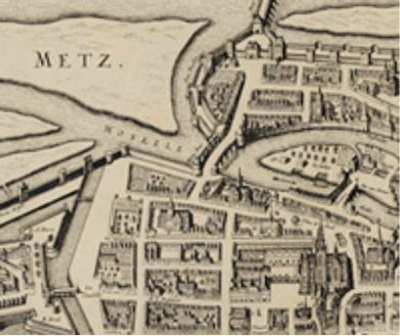
French and Jewish: Defining a Modern Jewish Identity in the 19th Century
Looking at the Jews through the lens of French literature, politics, and religion, three scholars consider the far-reaching impact of Jewish emancipation on the meaning of being Jewish in the modern world.

Black Square: Malevich and the Origin of Suprematism
In this lecture, Aleksandra Shatskikh speaks about the significance of Kazimir Malevich’s Black Square painting, and sheds new light on Malevich, his legacy and influence, and the genesis of the Suprematist movement.
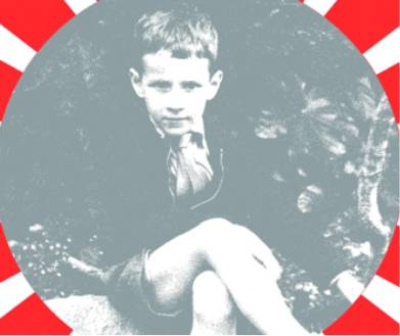
Edokko: Growing Up a Foreigner in Wartime Japan
Isaac Shapiro joined Rabbi Marvin Tokayer in conversation to share his family’s experience, his fascinating story growing up Jewish in Japan, and his ultimate immigration to America.
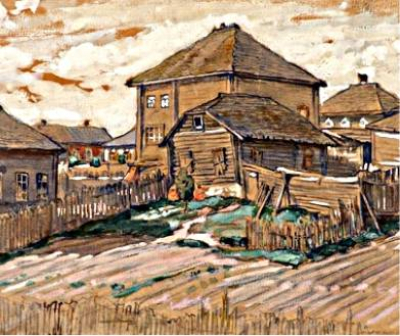
The Velizh Affair: Ritual Murder in a Russian Border Town
Now erased from historical memory, the Velizh Affair (1823-1835) was the longest ritual murder case in the modern world, and most likely in all of world history.

The Vilna Gaon and the Making of Modern Judaism
Eliyahu Stern joined in conversation with Jeremy Dauber for a discussion about the Vilna Gaon, his influence on modern Judaism, and why his legacy has been claimed by traditionalists, enlighteners, Zionists and the Orthodox.

Reflecting on the Beilis Trial
Fall 2013 marked the 100th anniversary of the trial of Mendel Beilis, an innocent factory clerk in tsarist Russia accused of murdering a Christian. During its time, the Beilis Trial provoked international protest from media, politicians, writers and intellectuals, but today it is little known.

One Thousand Children: The Untold Story of the American Kindertransport
Between 1934 and 1945, approximately one thousand children were rescued from Nazi persecution and brought to America unaccompanied by their parents.

The Jews in Poland-Lithuania and Russia: 1350 to the Present Day
For centuries, Poland and Russia formed the heartland of the Jewish world. Until World War II, this area was home to over forty percent of world Jewry: nearly three and a half million Jews lived in Poland, and nearly three million more lived in the Soviet Union.

Sex, Yiddish and the Law: Jewish Life in Metz in the 18th Century
Jay Berkovitz and Magda Teter take a rare look at three individual court cases recorded in the Pinkas of Metz. Selected because of their illuminating character, these cases offer a glimpse into the cultural, legal and sexual lives of members of the Metz Jewish community.

The Remarkable Life and Afterlife of Sholem Aleichem
Novelist, playwright, journalist, essayist, and editor, Sholem Aleichem was one of the founding giants of modern Yiddish literature.
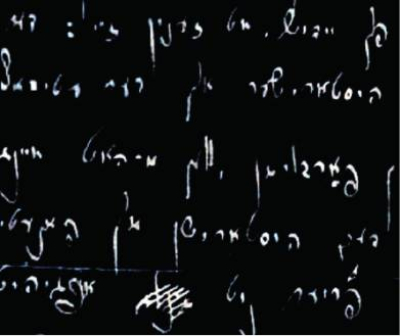
Creating Identity: Yiddish Across a Spectrum of Jewish Communities Today
Today, there are approximately half a million Yiddish speakers in the United States. But what role does it play in speakers’ lives?

Jewish Scholars and Scholarship in 18th Century Metz
Rabbi Moshe Arye Bamberger, the Head of the Bet Din of the Jewish community of Metz, France presented a seminar on a new publication, Torat Chachmei Metz, or The Torah of the Scholars of Metz, which is based on an original manuscript in the YIVO Archives.

The House at Ujazdowskie 16: Jewish Families in Warsaw After the Holocaust
Karen Auerbach’s book, The House at Ujazdowskie 16: Jewish Families in Warsaw After the Holocaust, traces the history of ten families that were neighbors in one building as a case study of Jewish life in the postwar Polish capital.

60th Anniversary of the Nusakh Vilne Memorial Program
In YIVO’s annual commemoration of the Vilna Jewish community, Yelena Shmulenson, Binyumen Schaechter, Ruth Baran-Gerold, and others explore Vilna’s presence in poetry, music, and personal history.
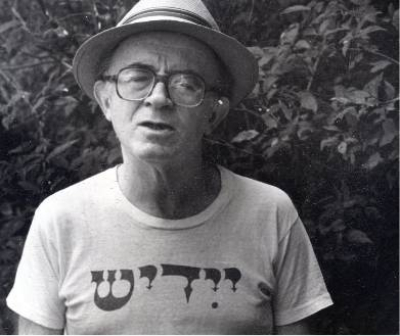
Annual Mordkhe Schaechter Memorial Program
This Yiddish memorial program honoring educator Mordkhe Schaechter had remarks by Samuel Kassow and Gella Schweid-Fishman, and a music program with Anthony Mordechai-Tsvi Russell and Alexander Ruvinstein.

Celebration of the New Comprehensive Yiddish-English Dictionary
This program marked a celebration of the new Comprehensive Yiddish-English Dictionary, the largest and most complete of its kind to date, published by Indiana University Press.

Sovietization in the Pale: The Bolshevik Experiment in Minsk, the Jerusalem of Belorussia
Elissa Bemporad speaks on her new book about the Bolshevik experiment in Minsk.

Jews, You Should Fight to the Bitter End: Bogoraz's Literary Response to the Gomel' Pogrom
In 1904, Russian Jewish writer-ethnographer Vladimir Bogoraz went to Gomel', a city in present-day Belarus, to document the trial regarding the 1903 Gomel' pogrom.

Yiddish in the City: SF to NYC
Yiddish in the City: Songs of love, longing and lust for life. From your first kiss to your first glass of wine, from the foggy hills of San Francisco to a Hungarian café, to the raucous streets of New York City.

Jewish Composers: A German Connection
The Spring 2013 Sidney Krum concert presents masterpieces by Jewish composers who were influenced by German musical culture.

'If We Will It': A History of the Yiddish Encyclopedia
In 1930, a group of Eastern European Jewish scholars, writers, and activists living in Berlin, Germany began planning the first ever comprehensive Yiddish-language encyclopedia to celebrate the seventieth birthday of the historian Simon Dubnow.
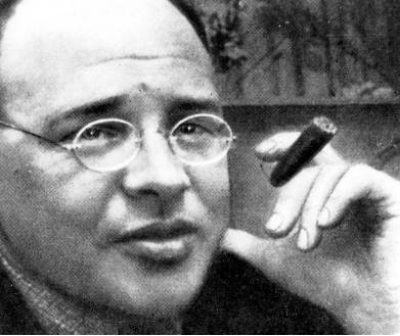
Babel in Yiddish / Yiddish in Babel
This talk explored how Isaak Babel, the great Soviet Jewish short-story writer, not only knew Yiddish, but was thoroughly immersed in Yiddish langauge and culture.

Floating Worlds and Future Cities: The Genius of Lazar Khidekel, Suprematism, and the Russian Avant-Garde
“Floating Worlds and Future Cities" presents the first comprehensive exhibition in the United States of the work of the great Russian-Jewish artist, architect, designer and theoretician, Lazar Khidekel.

The Taste of Ashes
Oskar has just killed himself. After waiting a quarter century, he returned to Prague only to find it was no longer his home. With his memorial service, Yale historian and prize-winning author Marci Shore leads us gently into the post-totalitarian world.

Visions of a Jewish Future: Jewish Bakers, Community Organizing and Yiddish Culture in East Los Angeles
This lecture presents a portrait of Yiddish-speaking Jewish immigrants who settled in Boyle Heights in the early 20th century, a neighborhood referred to by generations of historians as “Los Angeles’ Lower East Side.”
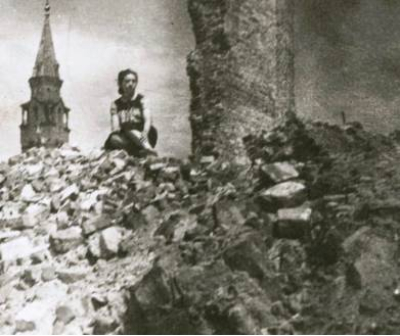
Yom Hashoah Program commemorating the 70th Anniversary of the Warsaw Ghetto Uprising
This “From the YIVO Archives” program featured YIVO's Hersch Wasser collection (1939-1946), which consists of materials from the Warsaw ghetto organized by Emanuel Ringelblum as part of the underground Oyneg Shabes collection effort.
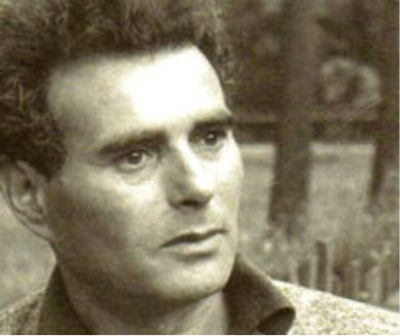
'Yosef Kerler', A Film by Boris Sandler
Boris Sandler presents his documentary about the Yiddish poet Josef Kerler (1918-2000), whose lyrical, populist poetry was first lauded and then suppressed in his native Soviet Union.

Forging a Field: Recovering Uriel Weinreich’s Research on Yiddish Culture in Eastern Europe
Uriel Weinreich, the most prolific and wide-ranging Yiddish researcher, is ignored by new scholars, largely because they neglect the Yiddish research tradition.

It Was a Long Time Ago, and It Never Happened Anyway: Russia and the Communist Past
In this talk David Satter, a former Moscow correspondent and longtime writer on Russia and the Soviet Union, explores the moral and spiritual crisis of Russian society.

Jews and Words: A Celebration of Jewish Writing, Language, and Expression
This program was a day-long conference to mark the publication of the inaugural volume of the Posen Library of Jewish Culture and Civilization and its companion book, Jews and Words by Amos Oz and Fania Oz-Salzberger.

Laughing All the Way to Freedom
Drawing on his book, Taking Penguins to the Movies: Ethnic Humor in Russia, Professor Emil Draitser of Hunter College explores the role of jokelore in helping Soviet Jews survive oppression, fight discrimination, and reaffirm their Jewish identity.

Dubnov, Freud & Husserl: The Creation of Modern Consciousness in Eastern European Jewish Culture
The end of the 19th century saw the birth of secular Jewish nationalism, the discovery of psychoanalysis and the founding of the philosophical movement known as phenomenology.




